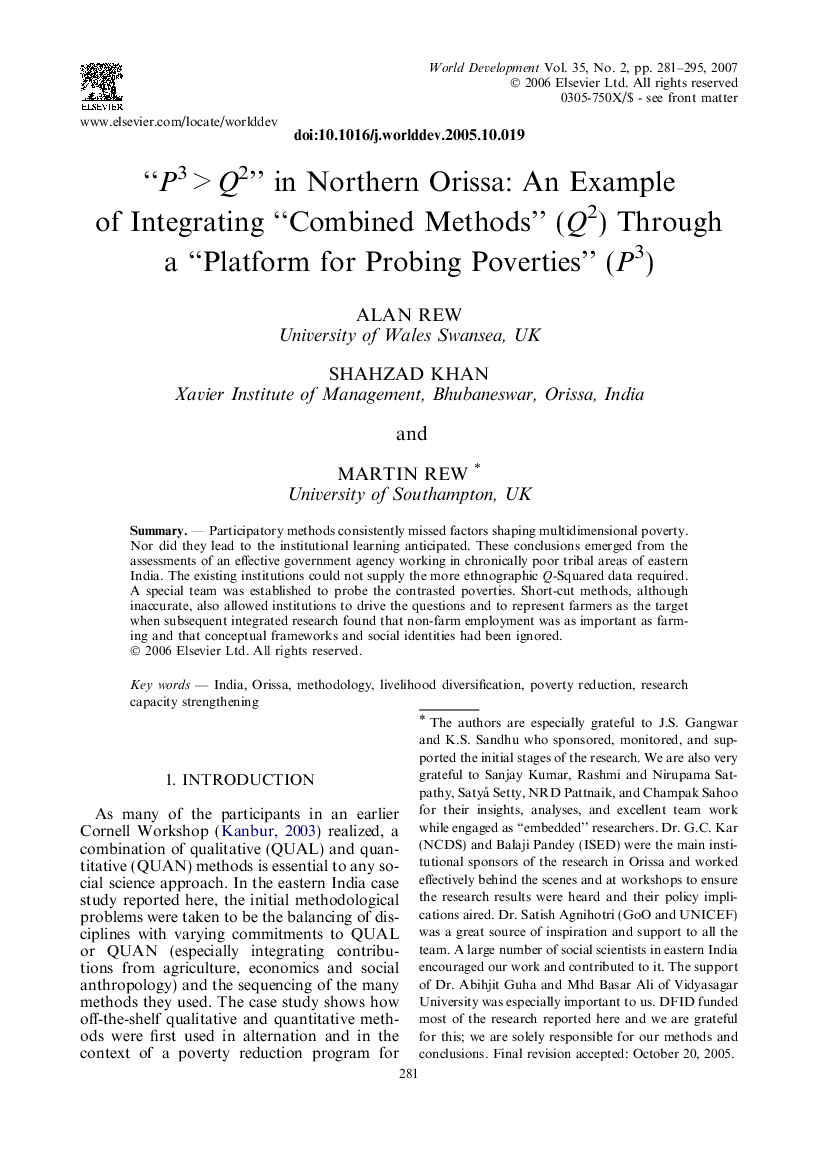| Article ID | Journal | Published Year | Pages | File Type |
|---|---|---|---|---|
| 991836 | World Development | 2007 | 15 Pages |
Abstract
SummaryParticipatory methods consistently missed factors shaping multidimensional poverty. Nor did they lead to the institutional learning anticipated. These conclusions emerged from the assessments of an effective government agency working in chronically poor tribal areas of eastern India. The existing institutions could not supply the more ethnographic Q-Squared data required. A special team was established to probe the contrasted poverties. Short-cut methods, although inaccurate, also allowed institutions to drive the questions and to represent farmers as the target when subsequent integrated research found that non-farm employment was as important as farming and that conceptual frameworks and social identities had been ignored.
Related Topics
Social Sciences and Humanities
Economics, Econometrics and Finance
Economics and Econometrics
Authors
Alan Rew, Shahzad Khan, Martin Rew,
